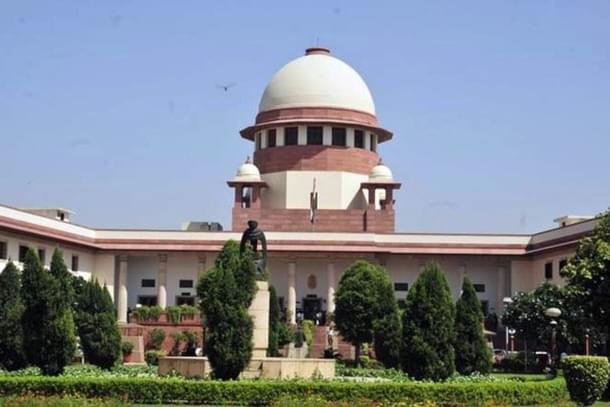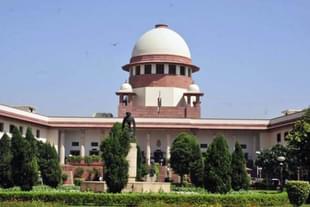News Brief
SC Upholds Constitutional Validity Of UP Madrasa Act Except For Provisions Regulating Higher Education Degrees—What You Need To Know
Swarajya Staff
Nov 05, 2024, 12:26 PM | Updated 12:26 PM IST
Save & read from anywhere!
Bookmark stories for easy access on any device or the Swarajya app.


The Supreme Court on Tuesday (5 November) upheld the constitutional validity of the 'Uttar Pradesh Board of Madarsa Education Act 2004', thereby setting aside the Allahabad High Court's judgement which had struck it down earlier.
On Tuesday, a three-judge Bench of the Supreme Court, led by Chief Justice D Y Chandrachud, affirmed the constitutional validity of the Uttar Pradesh Board of Madrasa Education Act, 2004, overturning a previous ruling by the Allahabad High Court.
In March, the Allahabad High Court struck down the Uttar Pradesh Board of Madrasa Education Act, 2004, saying it violated the principles of secularism.
However, in April, the apex court had stayed the HC verdict until it decided the validity of the UP law.
The Madarsa Act establishes a regulatory framework for madarsa education where, apart from the curriculum of the National Council of Educational Research and Training (NCERT), religious education is imparted as well.
The law created the Uttar Pradesh Board of Madrasa Education, largely represented by members from the Muslim community.
Under Section 9, the board’s roles cover developing course materials and overseeing examinations for qualifications ranging from ‘Maulvi’ (Class 10 level) to ‘Fazil’ (Master’s level).
A bench comprising Chief Justice of India D Y Chandracuhd, Justice J B Pardiwala and Manoj Misra heard the challenge to Allahabad High Court's 22 March judgment striking down the 'Uttar Pradesh Board of Madarsa Education Act 2004' as unconstitutional.
The Uttar Pradesh government defended its position before the Supreme Court, contending that the Act is constitutional.
The government argued that rather than striking the entire Act, only the offending provisions need to have been examined.
The SC bench held that the high court had erred in holding that the statute must be struck down if it violates the secularism principle.
"The state can regulate the standards of education (in madrasas) ... regulations relating to the quality of education do not interfere with the administration of the madrasas," the Chief Justice added.
The bench noted that the Act does not directly interfere with the day-to-day administration of madrasas.
"The Act is consistent with the positive obligation of the State to ensure that the children get adequate education," it said.
However, the Court held that the Madarsa Act, to the extent it regulates higher education in relation to 'fazil' and 'kamil' degrees, is in conflict with the UGC Act and to that extent it was unconstitutional.





